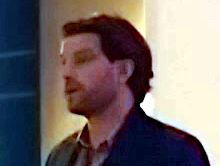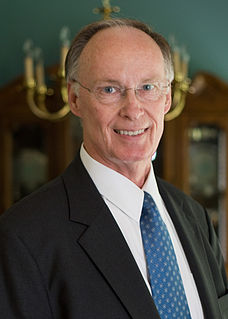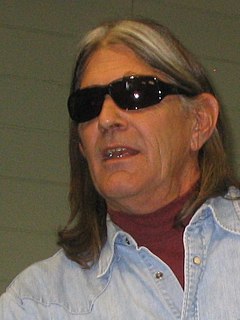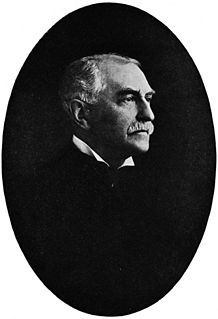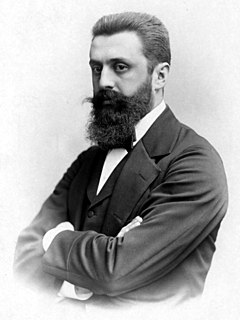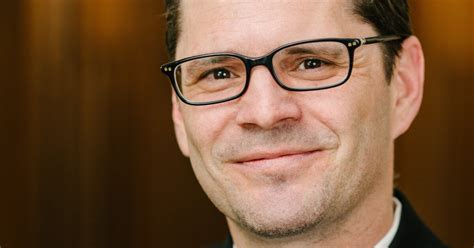Top 1200 Intellectual Property Quotes & Sayings - Page 6
Explore popular Intellectual Property quotes.
Last updated on December 25, 2024.
Many foreign property owners work in the City of London and are encouraged to bring their expertise and earning power to this country because of the favourable capital tax environment. Attacking their property profit may encourage some to leave, but it would certainly deter others from coming in the first place.
In virtually every Continental state at this time, aristocracies had to live with the risk that their property might be pillaged or confiscated. Only in Great Britain did it prove possible to float the idea that aristocratic property was in some magical and strictly intangible way the people's property also. The fact that hundreds of thousands of men and women today are willing to accept that privately owned country houses and their contents are part of Britain's national heritage is one more proof of how successfully the British elite reconstructed its cultural image in an age of revolution.
Once again, we are reminded that awakening, or enlightenment is not the property of Buddhism, any more than Truth is the property of Christianity. Neither the Buddha nor the Christ belongs exclusively to the communities that were founded in their names. They belong to all people of goodwill, all who are attentive to the secret which lives in the depths of their breath and their consciousness.
The churches rose to power on the income from tax-free property. What earthly -or heavenly- right have they got to enjoy a privilege denied to everyone else, even including nonprofit organizations? None! My contention is that with the churches exempted from property taxation, you and I have to pay that much more in taxes to make up for what they're not contributing.
Private property creates for the individual a sphere in which he is free of the state. It sets limits to the operation of the authoritarian will. It allows other forces to arise side by side with and in opposition to political power. It thus becomes the basis of all those activities that are free from violent interference on the part of the state. It is the soil in which the seeds of freedom are nurtured and in which the autonomy of the individual and ultimately all intellectual and material progress are rooted.
If somebody has a property in the middle of a 7,000 job factory, as an example, that's going to move into the town - but they need this one corner of this property, and it's going to provide 7,000 jobs in a community that's dying, of which we have many in this country, OK? I am for that. That's a big economic development
My concern over private property is that it no longer fosters individuality. The historic destiny of private property is that it has created a highly corporatized economy, and I have to ask myself why. What is it in the market that led 100 capitalists to dissolve into 10 as a result of rivalry and accumulation, 10 into 3, and I think if the system has its way, those 3 into 1?
[D]emocracy will soon degenerate into an anarchy, such an anarchy that every man will do what is right in his own eyes and no man's life or property or reputation or liberty will be secure, and every one of these will soon mould itself into a system of subordination of all the moral virtues and intellectual abilities, all the powers of wealth, beauty, wit and science, to the wanton pleasures, the capricious will, and the execrable cruelty of one or a very few.
I feel with some passion that what we truly are is private, and almost infinitely complex, and ambiguous, and both external and internal, and double- or triple- or multiply natured, and largely mysterious even to ourselves; and furthermore that what we are is only part of us, because identity, unlike "identity", must include what we do. And I think that to find oneself and every aspect of this complexity reduced in the public mind to one property that apparently subsumes all the rest ("gay", "black", "Muslim", whatever) is to be the victim of a piece of extraordinary intellectual vulgarity.
Men have looked away from themselves and at things so long that they have come to esteem the religious, learned and civil institutions as guards of property, and they deprecate assaults on these, because they feel them to be assaults on property. They measure their esteem of each other by what each has, and not by what each is.
There are two principles on which all men of intellectual integrity and good will can agree, as a 'basic minimum,' as a precondition of any discussion, co-operation or movement toward an intellectual Renaissance. . . . They are not axioms, but until a man has proved them to himself and has accepted them, he is not fit for an intellectual discussion. These two principles are: a. that emotions are not tools of cognition; b. that no man has the right to initiate the use of physical force against others.
Tools may be animate as well as inanimate; for instance, a ship's captain uses a lifeless rudder, but a living man for watch; for a servant is, from the point of view of his craft, categorized as one of its tools. So any piece of property can be regarded as a tool enabling a man to live, and his property is an assemblage of such tools; a slave is a sort of living piece of property; and like any other servant is a tool in charge of other tools.
I've begun to realize, as I'm getting older, that I was taught to go for a certain kind of stillness to get things done. I missed that in my life. I loved my grandmother's property, out in South Georgia right above the Florida line, so I just thought I'd find some property where I could feel that again.
If men are discharged of reverence for ancient usage, they will treat this world, almost certainly, as if it were their private property, to be consumed for their sensual gratification; and thus they will destroy in their lust for enjoyment the property of future generations, of their own contemporaries, and indeed their very own capital.
I hear Republicans and Libertarians and so forth talking about property rights, but they stop talking about property rights as soon as the subject of American Indians comes up, because they know fully well, perhaps not in a fully articulated, conscious form, but they know fully well that the basis for the very system of endeavor and enterprise and profitability to which they are committed and devoted accrues on the basis of theft of the resources of someone else. They are in possession of stolen property. They know it. They all know it. It's a dishonest endeavor from day one.
Pollution and overuse of resources stem directly from the failure of government to defend private property. If property rights were to be defended adequately, we would find that here, as in other areas of our economy and society, private enterprise and modern technology would come not as a curse to mankind but as its salvation.
Monopolistic capitalism is to blame for this; it sunders the right to own property from responsibility that owning property involves. Those who own only a few stocks have no practical control of any industry. They vote by postcard proxy, but they have rarely even seen "their" company. The two elements which ought to be inextricably joined in any true conception of private property - ownership and responsibility - are separated. Those who own do not manage; those who manage; those who manage and work do not control or own.
Thirdly, the supreme power cannot take from any man any part of his property without his own consent: for the preservation of property being the end of government, and that for which men enter into society, it necessarily supposes and requires, that the people should have property, without which they must be supposed to lose that, by entering into society, which was the end for which they entered into it; too gross an absurdity for any man to own.
When incentive to acquire and obtain property is gone, people no longer make efforts to acquire any... Those who infringe upon property rights commit an injustice... If this occurs repeatedly, all incentives to cultural enterprise are destroyed and they cease utterly to make an effort. This leads to destruction and ruin of civilization.
We must expropriate gently the private property on the state assigned to us. We shall try to spirit the penniless population across the border by procuring employment for it in the transit countries, while denying it employment in our country. The property owners will come over to our side. Both the process of expropriation and the removal of the poor must be carried out discretely and circumspectly. Let the owners of the immoveable property believe that they are cheating us, selling us things for more than they are worth. But we are not going to sell them anything back.
NAFTA and GATT are quite similar. They both have highly protectionist elements. They're kind of a mixture of liberalization and protection designed to expand the power of transnational corporations. They're very basically investor's rights agreements. One crucial part in both is the "intellectual property right," which is a funny way of saying that corporations, like pharmaceutical companies, will have near-monopolistic rule over future technology. This now includes product as well as process rights.
Disgust is expressed by violence, and it is to be noted of our intellectual temper that violence is a quality which is felt to have a peculiarly intellectual sanction. Our preference, even as articulated by those who are most mild in their persons, is increasingly for the absolute and extreme, of which we feel violence to be the true sign. The gentlest of us will know that the tigers of wrath are to be preferred to the horses of instruction and will consider it intellectual cowardice to take into account what happens to those who ride tigers.
What’s happened is that, almost overnight, we’ve switched from democracy in real-property recording to oligarchy in real-property recording. There was no court case behind this, no statute from Congress or the state legislatures. It was accomplished in a private corporate decision. The banks just did it.
For better or worse, we are the Court of Appeals for the Hollywood Circuit. Millions of people toil in the shadow of the law we make, and much of their livelihood is made possible by the existence of intellectual property rights. But much of their livelihood - and much of the vibrancy of our culture - also depends on the existence of other intangible rights: The right to draw ideas from a rich and varied public domain, and the right to mock, for profit as well as fun, the cultural icons of our time.







